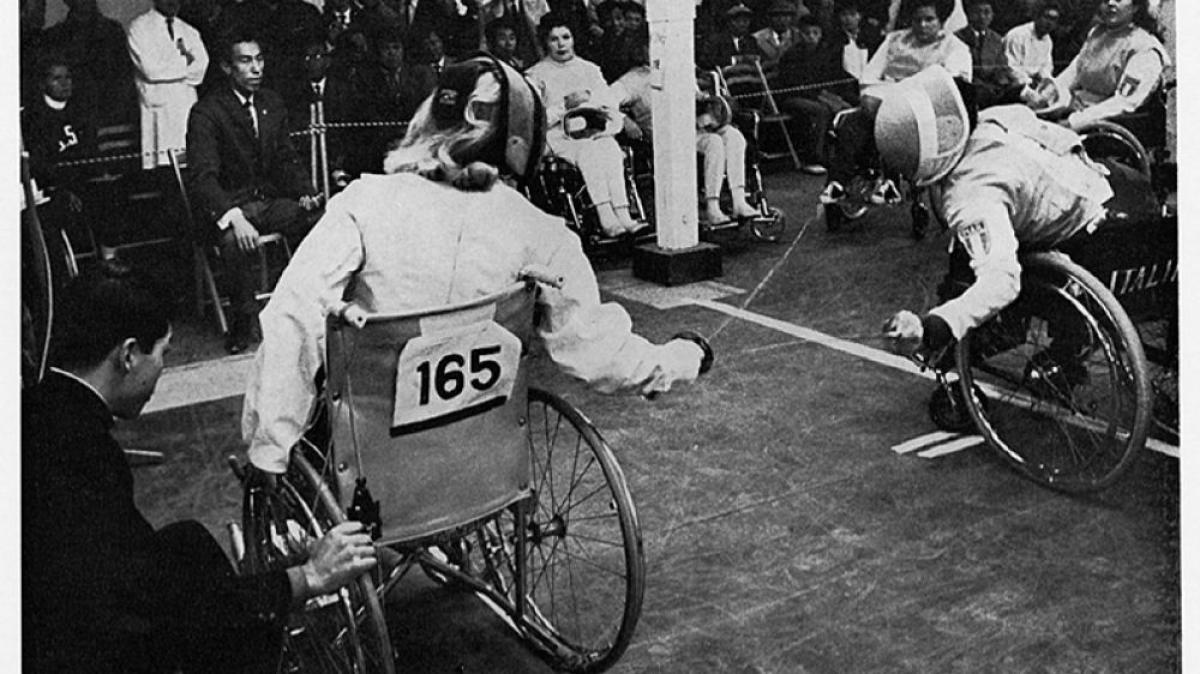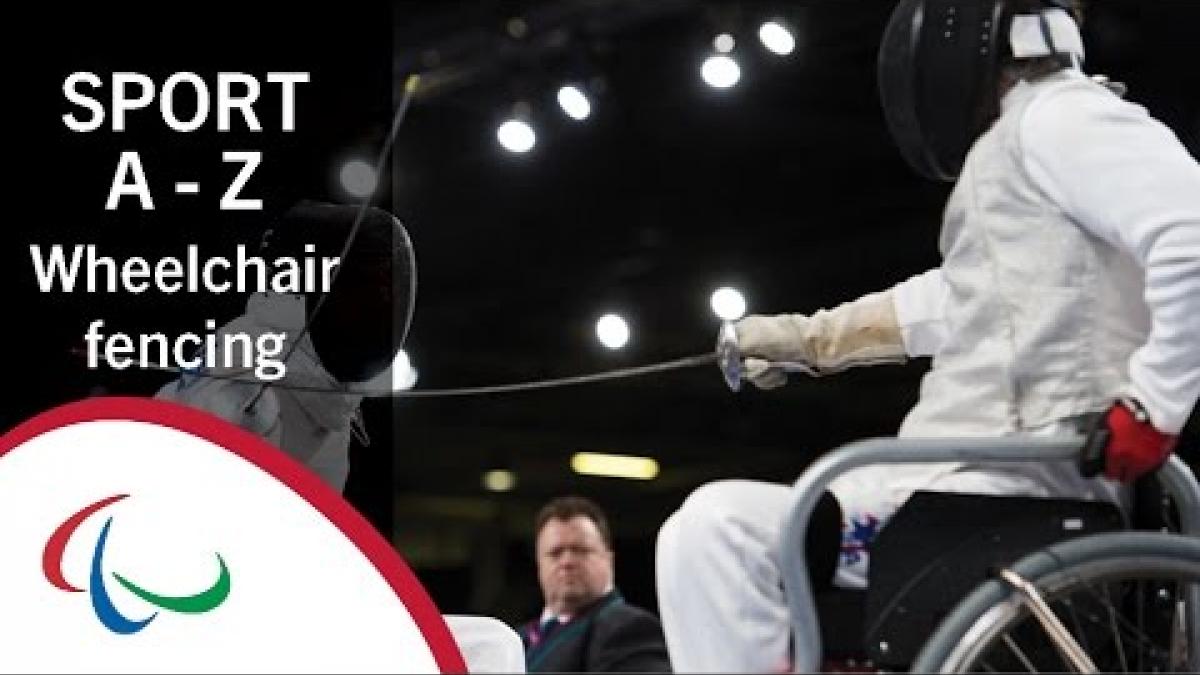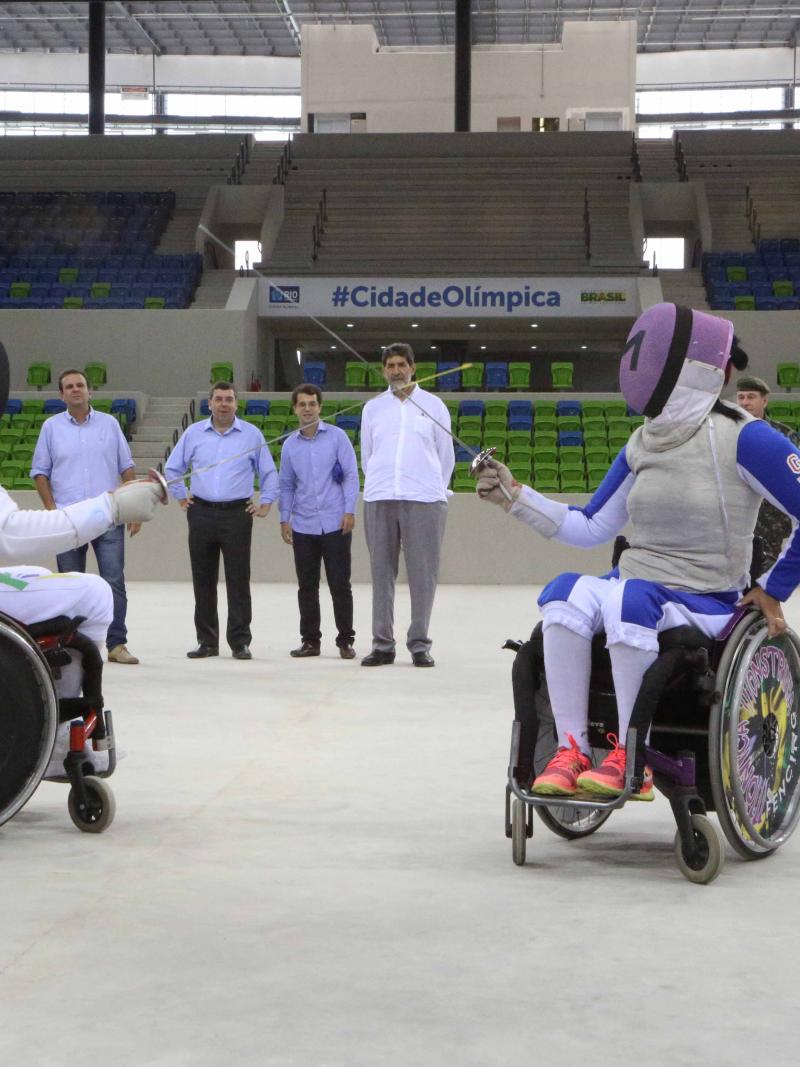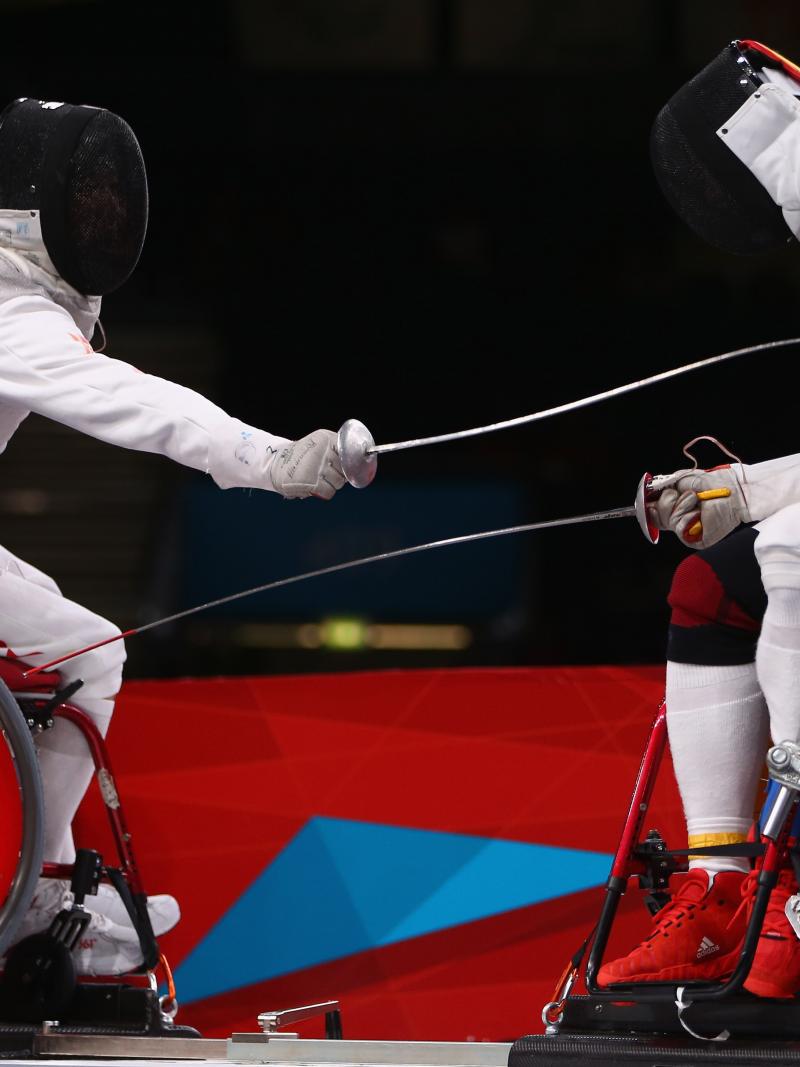Sport week: History of wheelchair fencing
The sport was developed by Sir Ludwig Gutmann, founder of the Paralympic Movement. 21 Jul 2016
Wheelchair fencing was featured at the first Paralympic Games in Rome in 1960, and at every Paralympics since.
Sir Ludwig Gutmann, who founded the Paralympic Movement, was himself a keen fencer and quickly recognised the potential for the sport to be competed from a wheelchair. It was therefore no surprise that wheelchair fencing featured at the International Stoke Mandeville Games in 1954 – a predecessor of the Paralympic Games organised by Gutmann.
During that event, wheelchair fencing was only shown as a demonstration between a paraplegic fencer and his able-bodied instructor. But the following year, sabre fencing competition was added to the programme. In 1956, the foil event was held for women fencers. The following year, epee events were added. Today, all three sword types are contested in wheelchair fencing.
Fencers at first competed in heavy brown wheelchairs known as travaux chairs. However, as wheelchair frames developed and new lighter materials were used, movement during bouts became an issue. The initial solution was for someone to crouch behind the fencers and physically hold the chairs.
But by the 1957 Stoke Mandeville Games, frames were being trialled that held the chairs in place. These were developed further, first in the Netherlands and then in Italy, leading to the frames that hold the chairs of wheelchair fencers in place in competition today.
In 1960, wheelchair fencing was part of the very first Paralympic Games in Rome, Italy, though only three medal events (men’s sabre, men’s sabre team and women’s foil) were contested and only Italian athletes competed.
No wheelchair fencer has won more Paralympic medals than Italy’s Roberto Marson. Marson won his first wheelchair fencing medal at Tokyo 1964 and went on to win 15 in total. Marson also won Paralympic medals in swimming and athletics.
Italy ranks second in the overall Paralympic medals table for the sport with 86, a total bettered only by France (134, 61 of them gold). French athletes Christian Lachaud and Andre Hennaert share the record for the most Paralympic gold medals in wheelchair fencing, with nine each.
At the Barcelona 1992 Games, Hungary’s wheelchair fencer Pal Szekeres became the first athlete to win medals at both the Olympic and Paralympic Games. Szekeres won bronze at the 1988 Olympic Games in Seoul. In 1991, he was involved in a bus accident. Szekeres won Paralympic wheelchair fencing gold in Barcelona 1992 and went on to win medals at the four subsequent Paralympic Games.
At Athens 2004, Hong Kong, China’s Yu Chui Yee became the first wheelchair fencer to win four gold medals in the sport at one Games. Yee won gold in the individual foil and epee category A events and the team epee and foil competitions.
For the Beijing 2008 Paralympic Games, the team events were removed from the programme, though they were reinstated at London 2012.
At London 2012, China topped the medals table, with 10 medals including six golds. Hong Kong and Poland were the second and third ranked nations with seven and three medals, respectively.
Brazil made a dramatic Paralympic debut in the sport at London 2012, with Jovane Silva Guissone winning gold in the epee category B event.
Guissone is now hopeful of repeating the feat in his home country at Rio 2016. He will be among the 88 wheelchair fencers competing across 14 medal events.
Editor’s note: Each sport on the Rio 2016 Paralympic programme will have a dedicated week of featured content published on paralympic.org. Every week a new sport will be featured and the series will run until September’s Games, helping the public understand more about the 22 sports being contested in Rio.
__
Sport fans from around the world can now buy their Paralympic tickets for Rio 2016 from authorised ticket resellers (ATRs)
The IPC’s Global ATR is Jet Set Sports, and Rio 2016 tickets and packages can be purchased on the CoSport website.
Residents of Brazil can buy 2016 Paralympics tickets directly from the Rio 2016 website.
Visa International is the exclusive payment card and the official payment system for the Paralympic Games.

 Facebook
Facebook
 Instagram
Instagram
 Twitter
Twitter
 Youtube
Youtube
 TikTok
TikTok
 Newsletter Subscribe
Newsletter Subscribe



